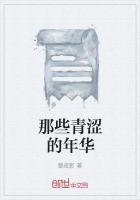Yours very truly, A. LINCOLN.
AFTER THE DEMOCRATIC VICTORY OF BUCHANAN
FRAGMENT OF SPEECH AT A REPUBLICAN BANQUET
IN CHICAGO, DECEMBER 10, 1856.
We have another annual Presidential message. Like a rejected lover ****** merry at the wedding of his rival, the President felicitates himself hugely over the late Presidential election.
He considers the result a signal triumph of good principles and good men, and a very pointed rebuke of bad ones. He says the people did it. He forgets that the "people," as he complacently calls only those who voted for Buchanan, are in a minority of the whole people by about four hundred thousand votes--one full tenth of all the votes. Remembering this, he might perceive that the "rebuke" may not be quite as durable as he seems to think--that the majority may not choose to remain permanently rebuked by that minority.
The President thinks the great body of us Fremonters, being ardently attached to liberty, in the abstract, were duped by a few wicked and designing men. There is a slight difference of opinion on this. We think he, being ardently attached to the hope of a second term, in the concrete, was duped by men who had liberty every way. He is the cat's-paw. By much dragging of chestnuts from the fire for others to eat, his claws are burnt off to the gristle, and he is thrown aside as unfit for further use. As the fool said of King Lear, when his daughters had turned him out of doors, "He 's a shelled peascod" ["That 's a sheal'd peascod").
So far as the President charges us "with a desire to change the domestic institutions of existing States," and of "doing everything in our power to deprive the Constitution and the laws of moral authority," for the whole party on belief, and for myself on knowledge, I pronounce the charge an unmixed and unmitigated falsehood.
Our government rests in public opinion. Whoever can change public opinion can change the government practically just so much. Public opinion, on any subject, always has a "central idea," from which all its minor thoughts radiate. That "central idea" in our political public opinion at the beginning was, and until recently has continued to be, "the equality of men." And although it has always submitted patiently to whatever of inequality there seemed to be as matter of actual necessity, its constant working has been a steady progress toward the practical equality of all men. The late Presidential election was a struggle by one party to discard that central idea and to substitute for it the opposite idea that slavery is right in the abstract, the workings of which as a central idea may be the perpetuity of human slavery and its extension to all countries and colors. Less than a year ago the Richmond Enquirer, an avowed advocate of slavery, regardless of color, in order to favor his views, invented the phrase "State equality," and now the President, in his message, adopts the Enquirer's catch- phrase, telling us the people "have asserted the constitutional equality of each and all of the States of the Union as States."
The President flatters himself that the new central idea is completely inaugurated; and so indeed it is, so far as the mere fact of a Presidential election can inaugurate it. To us it is left to know that the majority of the people have not yet declared for it, and to hope that they never will.
All of us who did not vote for Mr. Buchanan, taken together, are a majority of four hundred thousand. But in the late contest we were divided between Fremont and Fillmore. Can we not come together for the future? Let every one who really believes and is resolved that free society is not and shall not be a failure, and who can conscientiously declare that in the last contest he has done only what he thought best--let every such one have charity to believe that every other one can say as much. Thus let bygones be bygones; let past differences as nothing be; and with steady eye on the real issue let us reinaugurate the good old "central idea" of the republic. We can do it. The human heart is with us; God is with us. We shall again be able, not to declare that "all States as States are equal," nor yet that "all citizens as citizens are equal," but to renew the broader, better declaration, including both these and much more, that "all men are created equal.
TO Dr. R. BOAL.
SPRINGFIELD, Dec. 25, 1856.
DEAR SIR:-When I was at Chicago two weeks ago I saw Mr. Arnold, and from a remark of his I inferred he was thinking of the speakership, though I think he was not anxious about it. He seemed most anxious for harmony generally, and particularly that the contested seats from Peoria and McDonough might be rightly determined. Since I came home I had a talk with Cullom, one of our American representatives here, and he says he is for you for Speaker and also that he thinks all the Americans will be for you, unless it be Gorin, of Macon, of whom he cannot speak. If you would like to be Speaker go right up and see Arnold. He is talented, a practised debater, and, I think, would do himself more credit on the floor than in the Speaker's seat. Go and see him; and if you think fit, show him this letter.
Your friend as ever, A. LINCOLN.
1857
TO JOHN E. ROSETTE.
Private.
SPRINGFIELD, ILL., February 10, 1857.
DEAR SIR:--Your note about the little paragraph in the Republican was received yesterday, since which time I have been too unwell to notice it. I had not supposed you wrote or approved it. The whole originated in mistake. You know by the conversation with me that I thought the establishment of the paper unfortunate, but I always expected to throw no obstacle in its way, and to patronize it to the extent of taking and paying for one copy.
When the paper was brought to my house, my wife said to me, "Now are you going to take another worthless little paper?", I said to her evasively, "I have not directed the paper to be left." From this, in my absence, she sent the message to the carrier. This is the whole story.
Yours truly, A. LINCOLN.
RESPONSE TO A DOUGLAS SPEECH













